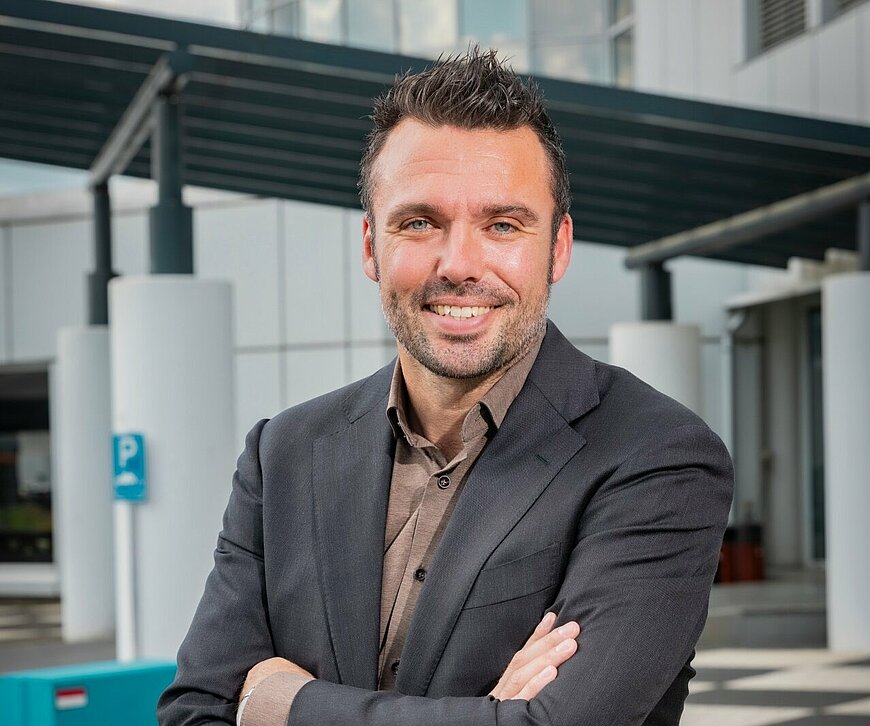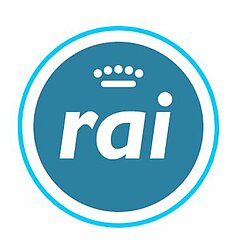Securing material independence of batteries

Interview with Peter Engels, responsible for the ‘Battery Systems for Heavy-Duty Mobility’ program within Battery Competence Cluster-NL
Together with industry, knowledge institutions, and trade associations, the Battery Competence Cluster-NL (BCC-NL) is working to accelerate the energy transition by developing a strong battery ecosystem and combining knowledge and competencies in battery technology. The focus is on the Dutch battery, transport, and maritime industries.
As a storage system for sustainable energy and a driver for the electrification of our mobility, the role of batteries is invaluable. The innovation program BCC-NL aims to give The Netherlands a strong position in the international battery market. By focusing on sustainability, circularity, and material independence, the cluster contributes to achieving climate goals and economic success in our country.
Knowledge About the Ecosystem
The impact and scope of BCC-NL are surprisingly high. Peter wondered what an innovation program like BCC-NL could offer to large organizations that already have specific knowledge, financial resources, and an international network. “We recently spoke with a major player in the Dutch market. This conversation highlighted that BCC-NL’s added value lies in our extensive knowledge of Dutch industrial companies involved in battery technology. Additionally, these companies collaborate with us, creating a strong alliance. This company was looking for more local clients in The Netherlands, even though it already had major clients in Asia and Western Europe. BCC-NL connects with a wide variety of companies, demonstrating that the entire ecosystem benefits from our program.”
A Platform for Everyone
BCC-NL focuses mainly on four themes in the field of batteries:
Second use, materials, and recycling
Sustainable battery components and production processes
Battery systems for a sustainable energy supply
Battery systems for heavy-duty mobility
For these themes, it is necessary to join forces. Peter explains, “We have about nine research institutions in The Netherlands, which is truly unique for the size of our small country. In addition to companies, organizations such as The Netherlands Foreign Investment Agency (NFIA), governmental organizations, and regional development agencies are connected to BCC-NL. This is an extremely valuable network of organizations and companies. As a connecting party, we try to unite all these entities. It is our role to navigate, support, and facilitate the program. We want to be a platform where all parties can go and make use of the support we provide to collaborate, address national and international issues, or evaluate where we stand technologically as The Netherlands. BCC-NL is both an innovation program and a platform where we facilitate, collaborate, steer, and advise. We also want to ensure that companies—and any other entities within them—find a way to support the Dutch battery ecosystem and become even more sustainable.”
On a Global Scale
One of BCC-NL projects is the Material Independence & Circular Batteries project of the National Growth Fund. Peter states: “In this project, companies, knowledge institutions, and the government collaborate to become more independent of rare materials mined in other countries and to use new materials for batteries, including setting up a recycling chain. The main goal is to put The Netherlands on the map globally as a major player in the battery sector, in a sustainable way. To achieve this, three important program lines have been established. The first is about sustainable material supply. This involves providing raw materials through refining and battery recycling. The second program line focuses on developing and scaling sustainable battery technology. This includes materials, components, and equipment. The third program line deals with circular battery systems for transport applications and grid stability. This includes heavy transport and large-scale pilots and demos for bulk batteries.”
A Green Investment
The intended results of this program include ensuring that The Netherlands has sufficient capacity and knowledge to recover materials from batteries. That these Dutch companies become key suppliers of sustainable battery processes and components, and that The Netherlands leads in zero emission end products in mobility, such as buses and trucks. Additionally, The Netherlands aims to be a leading supplier of bulk batteries for grid stability, and the program ensures that there is sufficient talent and personnel with the right skills in battery technology. “The National Growth Fund is investing €296 million in this project. This should not only contribute to economic growth in The Netherlands but also to a sustainable future. By investing in battery technology, we create this BCC-NL ecosystem that provides opportunities for Dutch companies and contributes to CO2 reduction and more efficient energy use,” Peter explains.
Facilitating Through Collaboration
Collaborating with BCC-NL can mean a lot for a company, both nationally and internationally. Peter, who brings extensive experience in sustainable technology and project management, plays a crucial role in this collaborative effort. With his wide experience in the Automotive Industry, Peter leads the BCC-NL Battery Systems for Heavy-Duty Mobility program. This program focuses on developing and implementing advanced battery systems for heavy-duty vehicles. His expertise ensures that the technical aspects of these projects meet the highest standards and align with broader sustainability and economic goals, ensuring all stakeholders are included in the discussion and all aspects of this emerging step in zero-emission mobility are covered, including the grid and overall infrastructure.
Peter’s background in engineering and his previous work with major industry players provide him with a unique perspective on the challenges and opportunities within the battery sector. He is known for his ability to bridge the gap between technical development and practical application, making him an important asset to BCC-NL and the Battery Systems for Heavy-Duty Mobility program. Under his leadership, the program makes significant steps in promoting the adoption of zero-emission technologies in the transport sector.
Peter emphasizes the importance of collaboration in achieving the program’s objectives. “We are a facilitator; a program platform you can communicate with and place your needs. We do our best to support you. We offer our network and facilitate you to enter a collaboration. Whether you think your organization is too small to reach larger partners or know your partners but lack access to decision-making parties, BCC-NL can probably help you. We combine similar requests and try to organize significant events around them. Other participants, of course, also play a role in this. They actively reach out to other companies to understand where they are or want to be, what the technological roadmap is, or where and when they want to be at what exact level. Because sometimes you need the next technical level, and another company just has that knowledge waiting for you,” concludes Peter. No need to reinvent the wheel twice.
BCC-NL has also fostered partnerships with both established international companies and emerging startups, stimulating innovation and creating new market opportunities. Peter’s vision is to make The Netherlands a leader in zero-emission heavy mobility, contribute to the global shift to a more sustainable future, and achieve this with all key stakeholders on board and aligned.
This is an interview from the RAI Automotive Industry Magazine about the Dutch automotive industry. Want to read more? Visit:Magazine Dutch Automotive Industry | RAI Vereniging

